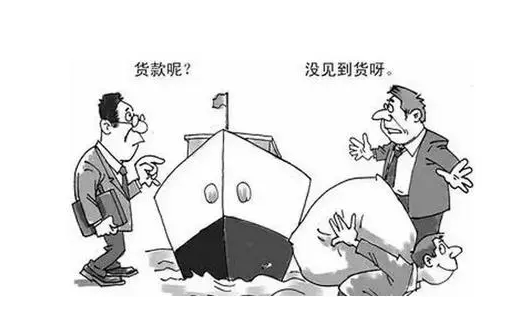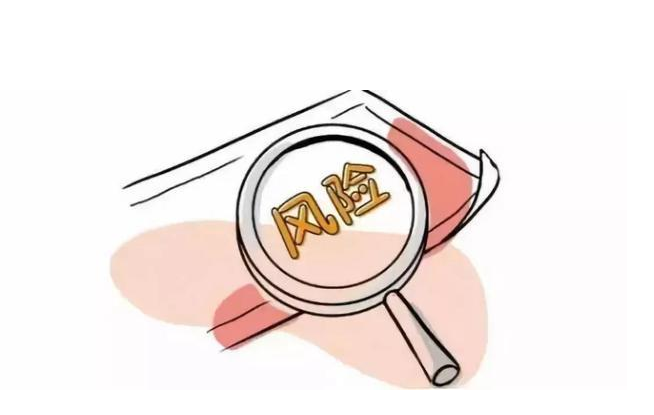Export has to prevent the "release of goods without documents"
 Feb 23, 2024|
Feb 23, 2024| View:122
View:122What is "shipment without documents"?
Release without bill of lading, also called release without original bill of lading, refers to the carrier or its agent (freight agent) or port authority or warehouse manager in the case of not recovering the original bill of lading, according to the consignee or notifier recorded in the bill of lading with a copy of the bill of lading or copy of the bill of lading, plus a letter of guarantee to release the goods.
Under normal circumstances, the receiver needs the original bill of lading or telex release or seaway to pick up the goods, but it often happens that "the original bill of lading in hand, the goods have been picked up". We call this situation "shipment without order". The normal operation of this transaction mode is: the customer pays 30% deposit in advance, we make the goods, arrange the shipment of the goods after the goods are finished, and then get the original bill of lading. Then send the copy of the bill of lading to the customer. After the customer confirms that the information of the bill of lading is OK, the customer pays the balance. After receiving the money, we send the original bill of lading to him, or ask the shipping company to telex release it, and then give the telex release number to the customer, the customer can take delivery of the goods.

This is a more conventional "release without documents", in fact, we often encounter a lot of unconventional "release without documents" operation, such as what documents do not need, even a copy of the bill of lading, can pick up the goods! The foreign trade is very anxious because most orders by sea are not small in amount. In this case, not only the goods are taken away by the consignee, but also the balance of the goods cannot be recovered.
What are the high-risk countries/regions for shipment without documents?
It is no dispute that releasing goods without documents is an illegal behavior in our country, but it is still regarded as a legal behavior in many regions based on its realistic consideration. For those engaged in shipping and foreign trade, it is self-evident to know which countries and regions allow the release of goods without documents.
Latin America, West Africa and many other countries, there are no single release of goods. Angola, Nicaragua, Guatemala, Honduras, El Salvador, Costa Rica, Dominica, Venezuela and other countries are all countries that can release goods without documents. In all these countries, a unilateral release policy is implemented for imported goods. The owner's control over the original bill of lading is cancelled.
In addition, the United States, Canada, Britain and other countries are allowed to take delivery of goods with copies of registered bills of lading. The convention is that the consignee of a "Straight B/L" can take delivery of the goods not by presenting the "original bill of lading" but only by presenting the endorsement on the "Notice of arrival" and the consignee's identification. This means that if the payment for goods is not recovered in time, even if the export enterprise has the original bill of lading in hand, it is of no use.
How to prevent shipment without order?
Signing CIF or C&M clauses When signing export contracts, foreign trade enterprises should sign CIF or C&M clauses as far as possible, and resist FOB clauses, so as to avoid foreign investors appointing overseas forwarders to arrange transportation.
If the foreign investor insists on FOB terms and appoints shipping company and freight forwarder to arrange transportation, it can accept the designated shipping company, but cannot accept freight forwarder enterprises or overseas freight forwarder representative offices that operate international freight forwarder business in China without the approval of MOFTRADE to arrange transportation, and explain to the foreign investor that any act of operating freight forwarder business and issuing bill of lading in China without approval is illegal.
If the foreign company still insists on appointing overseas freight forwarders, in order not to affect the export, it must operate in strict accordance with the procedures, that is, the designated overseas freight forwarders must entrust the freight forwarders approved by our department to issue the bill of lading and control the goods, and at the same time, the freight forwarders who issue the bill of lading must issue the letter of guarantee. It is promised that the goods shall be released against the original bill of lading circulated by the bank under the L/C upon arrival at the port of destination, otherwise it shall be liable for compensation for the goods released without the documents.

How to solve the problem of "release without documents"?
"Release of goods without documents" is not completely sure of the loss. Many customers have negotiated with the designated forwarders for release of goods without documents due to poor capital turnover, and sell goods first and then pay. That is to say, although some customers have released goods without a single, they will still make money, but it will be late.
In this case, we should actively keep in touch with the customer, and at the same time investigate the responsibility of the freight forwarder. The loss caused by the operation without the permission of the shipper should be responsible for the freight forwarder.
If it is the freight forwarder and foreign buyers maliciously collude or freight forwarder cheat goods, should take legal procedures. Contact and urge as soon as possible, and try to retain written evidence. Written evidence here also includes relevant electronic evidence, such as emails with the suffix of the other party's enterprise name. Contact records with individuals need to be analyzed on a case-by-case basis, whether they belong to electronic evidence.
At the same time, contact the lawyer as soon as possible, send the lawyer letter, collection letter, and start the blacklist system as soon as possible, cause pressure to the other party.
Begin assembling evidence as soon as possible to prepare for litigation. It is particularly worth noting that the limitation of maritime litigation is only one year (Article 257 of the Maritime Law), and the limitation of interruption is also different from the general limitation. Don't be the other party or because of their own due to procrastination, finally missed the statute of limitations.
It should be reminded that it is recommended to agree on arbitration as the way of dispute settlement, because if foreign parties are involved, the effective award of the Chinese court is unenforceable, while arbitration can be enforced, which will turn judicial relief into substantive relief. China is a party to the New York Convention. After getting an effective judgment, you can appoint a local lawyer or a collection agency to recover the loss.

 +86-21-61406313
+86-21-61406313 Login query
Login query
 Login query
Login query



